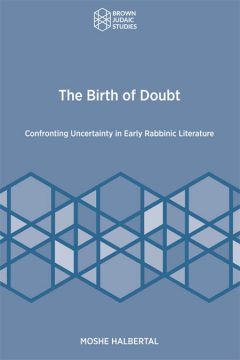Zalman Rothschild at The Marginalia Review:
 By bringing attention to the very first encounters with uncertainty in early rabbinic literature (the Mishna and Tosefta), Halbertal insightfully demonstrates the ways in which early Jewish legal authorities were keenly interested in “demarcate[ing] and limit[ing] the destabilizing power of doubt and fear of uncertainty.” The heaps of laws surrounding states of uncertainty – which Halbertal correctly describes as some of the most complex areas of Jewish law – were not designed, by virtue of their sheer volume and complexity, to increase anxiety but to quell it. Early rabbinic engagement with doubt was thus an expression of liberation, not legal bondage. Its intent was not to compound hair-splitting laws on top of likely never-to-be-experienced hypotheticals for the sake of burdening Jews with laws where none previously existed, thereby adding to their already extensive repertoire of rules. Rather, this complex system was intended to free up the Jewish practitioner.
By bringing attention to the very first encounters with uncertainty in early rabbinic literature (the Mishna and Tosefta), Halbertal insightfully demonstrates the ways in which early Jewish legal authorities were keenly interested in “demarcate[ing] and limit[ing] the destabilizing power of doubt and fear of uncertainty.” The heaps of laws surrounding states of uncertainty – which Halbertal correctly describes as some of the most complex areas of Jewish law – were not designed, by virtue of their sheer volume and complexity, to increase anxiety but to quell it. Early rabbinic engagement with doubt was thus an expression of liberation, not legal bondage. Its intent was not to compound hair-splitting laws on top of likely never-to-be-experienced hypotheticals for the sake of burdening Jews with laws where none previously existed, thereby adding to their already extensive repertoire of rules. Rather, this complex system was intended to free up the Jewish practitioner.
more here.
